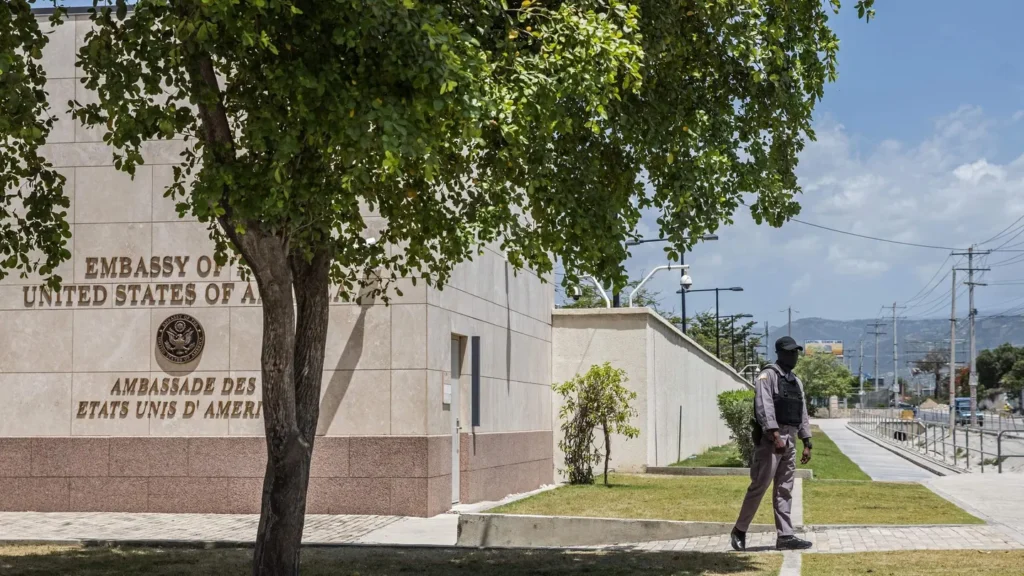Mar 10, 2024,12:20pm EDT
The U.S. military, as confirmed by both the embassy and military sources, initiated the evacuation of embassy staff in Haiti on Sunday morning. This action follows a significant jailbreak last weekend, which led to the destabilization of the Caribbean nation and the seizure of substantial parts of the capital city by armed gangs.
KEY FACTS
U.S. Southern Command stated that an airlift operation was conducted to remove non-essential American personnel from the embassy in Port-au-Prince.
The embassy, in a statement released on X, attributed the decision to evacuate staff to the heightened gang violence in the vicinity of U.S. embassy compounds and the airport.
The evacuation solely involved American embassy employees, with no Haitian nationals being evacuated from the country.
The U.S. military expressed readiness to support a proposed multinational security mission led by Kenya in Haiti, offering potential assistance in planning, information sharing, airlift, communications, and medical support.
The State Department refrained from providing an official comment on the matter.
KEY BACKGROUND
The evacuations occurred approximately one week after armed gangs orchestrated a mass jailbreak, liberating around 3,700 individuals from two of Haiti’s largest prisons. Prime Minister Ariel Henry was away in Nairobi during the jailbreak, engaging in discussions with Kenyan President William Ruto regarding support for a UN-backed multinational security force to aid in stabilizing Haiti. Gangs subsequently seized control of approximately 80% of Port-au-Prince, including key locations such as the national soccer stadium and the international airport. Reports of intense gunfire at Haiti’s National Palace heightened tensions further. Prime Minister Henry, absent since the jailbreak, was last seen entering Puerto Rico.
CHIEF CRITIC
Guy Philippe, a key figure in a failed 2004 coup against the Haitian government, criticized Henry for exacerbating the crisis by failing to resign as president as agreed upon. Philippe emphasized the necessity for a political transition to enable the proposed security force deployment and facilitate free and fair elections. In 2016, Philippe faced charges of money laundering related to drug trafficking in the U.S. and returned to Haiti after serving his six-year prison sentence.

